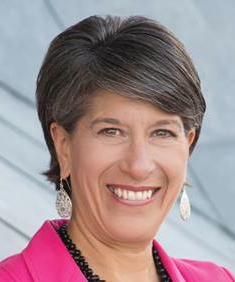More than 2 million couples marry annually in the United States. While the majority would tell you they are madly in love, some couples really wonder if they have what it takes to make their marriage last over time.
If wedding plans are in your future, it might interest you to know that a Life Innovations survey of 21,501 married couples from every state identified the top 10 strengths of happy marriages and the top 10 problems in marriage. The top 10 strengths are:
* Partners are satisfied with communication.
* Partners handle their differences creatively.
* They feel very close to each other.
* Spouses are not controlling.
* Partners discuss their problems well.
* They are satisfied with the affection they show and receive.
* There is a good balance of time alone and together.
* Family and friends rarely interfere.
* Partners agree on how to spend money.
* Partners agree on spiritual beliefs.
The research found that the strongest couples have strong communication skills, a clear sense of closeness as a couple, flexibility, personal compatibility and good conflict-resolution skills.
Strong marriages have a balance between separateness and togetherness. These couples prioritize togetherness, ask each other for help, enjoy doing things together and spend most of their free time together.
Some common factors in the relationship roles in strong marriages include both people being equally willing to make necessary adjustments in their roles, both being satisfied with the division of housework, both working hard to have an equal relationship and making most decisions jointly.
The happiest couples said they were satisfied with the way they communicate, found it easy to express their feelings and found their partner to be a good listener. They noted that their partner doesn't use put-downs.
Conflict management/resolution skills are crucial. In strong marriages, both partners say their partner understands their positions; they feel free to share their feelings and ideas; they take disagreements seriously and they work cooperatively to resolve conflicts.
According to the survey, the top 10 problems in marriage are:
* Problems sharing leadership.
* One partner is too stubborn.
* Stress created by child-rearing differences.
* One partner is too negative or critical.
* One partner wishes the other had more time.
* One partner wishes the other was more willing to share their feelings.
* Feeling responsible for issues.
* Avoiding conflict with partner.
* Difficulty completing tasks.
* Differences never get resolved.
Some common stumbling blocks are when one person feels most responsible for the problem, when conflict is avoided and when serious disputes erupt over minor issues. Relationships with unresolved differences can get into trouble. Stumbling blocks become walls instead of stepping stones to build up the marriage.
No matter how in love you feel, bringing two personalities and their families together and learning how to dance can be challenging. Don't just prepare for your wedding - take time to prepare for your marriage. Learning how to build on your strengths, creatively address differences and work together for the best interests of your marriage will be the best wedding present you can give to each other.
Julie Baumgardner is president and CEO of First Things First. Contact her at julieb@firstthings.org.

